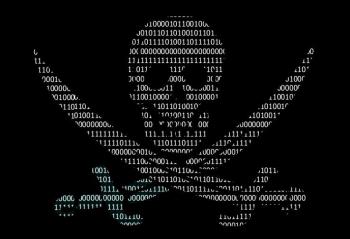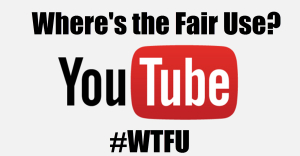Copyright law and the Internet
By Deanna A. Figueroa
Over the past year the development of the Internet has made it an infinite information hub that makes it easier to share any form of information at any given time. This is great for people seeking knowledge, entrainment, or want to spread information and make their own content that wouldn’t be able to through other means. While this has been an amazing advancement for the world it has, unfortunately, made it easier to pirate and share copyrighted material. Recently, copyright laws and the Internet have been a hot topic. There have been protective measures put in place to protect copyright holders but whether or not they’re being used in cases of copyright infringement is questionable in far too many cases. Copyright holders may be using the system put in place to protect them in order to silence and censor other creators.
Piracy is “the unauthorized use of another’s product, invention, or conception especially in infringement of copyright”(Piracy, 2016). When copyrighted content is distributed illegally through piracy the copyright holder looses whatever profit they would have gained if the people who pirated it for free purchased the content. With how ever expanding the internet is it’ s a hard job to keep up with piracy when there is so much to sift through. The real amount of money lost from the us economy is unknown due to the sheer size of the internet but an estimated fifty eight billion dollars is lost to internet piracy (Raustiala & Sprigman,2012). But how much does this actually hurt our big copyright holders? Research shows that most of the people who pirate movie, music and other content would have never bought it, especially consumers that couldn’t afford to if they wanted to (Raustiala & Sprigman, 2012). For the most part the loss of sales only affects those with a small market to begin with, not large companies like Viacom or Disney (who happen to be one of the biggest companies fighting for more copyright protection). I have know several artists who had to file DMCA takedowns against smaller ‘companies’ who do nothing but sell stolen content. Even bigger companies like Hot Topic and even Disney will take and edit work by others with no credit or compensation (Romano, 2013). Those are the people who are hurt by their copyright being infringed upon and are glad that the DMCA protects them when it can.
s a hard job to keep up with piracy when there is so much to sift through. The real amount of money lost from the us economy is unknown due to the sheer size of the internet but an estimated fifty eight billion dollars is lost to internet piracy (Raustiala & Sprigman,2012). But how much does this actually hurt our big copyright holders? Research shows that most of the people who pirate movie, music and other content would have never bought it, especially consumers that couldn’t afford to if they wanted to (Raustiala & Sprigman, 2012). For the most part the loss of sales only affects those with a small market to begin with, not large companies like Viacom or Disney (who happen to be one of the biggest companies fighting for more copyright protection). I have know several artists who had to file DMCA takedowns against smaller ‘companies’ who do nothing but sell stolen content. Even bigger companies like Hot Topic and even Disney will take and edit work by others with no credit or compensation (Romano, 2013). Those are the people who are hurt by their copyright being infringed upon and are glad that the DMCA protects them when it can.
With the rise in ease of piracy even though evidence points towards significantly less loss than previously though, there still came more copyright laws aimed at the Internet. SOPA (Stop Online Piracy Act) and PIPA (Protect IP Act) were a bills set out to “create a ‘blacklist’ of censored websites” (SOPA/PIPA, n.d.). While the bills were supposed to target online piracy, the bills “would allow for removal of enormous amounts of non-infringing content including political and other speech from the Web.”(SOPA/PIPA, n.d.) This was met with backlash, seeing as copyright holders could easily use this power to censor, silence and even force people to pay compensation without needing any court to determine that any law had really been broken. The damage these bills would have done would be enormous to small and even huge sites like YouTube or Drop box. Even though these bills didn’t pass, their effects are still being put into place with take downs of mass pirating sites and any site with no court making decisions.( SOPA/PIPA, n.d.)
When people are being found guilty until proven innocent, current copyright laws have been under scrutiny. Before a copyright holder can claim infringement in the United States, they must consider if the use of their material is covered under fair use. Fair use is “a legal doctrine that portions of copyrighted materials may be used without permission of the copyright owner provided the use is fair and reasonable.”(Fair use, 2016) Generally meaning that copyrighted material can be used without permission for the purpose of commentary, parodies, or if the content has been used in a way that constitutes a change in meaning and does not take profit that would have been expected to go to the owner. This protects creators and commentators from heavy copyright restrictions. Very recently started by the YouTube community is a protest dubbed where’s the fair use (#WTFU) in response to YouTube’s flawed copyright system. YouTube’s system has no penalties for false claims and you can even claim a video again after loosing a copyright dispute. Reviewers, lets players and other creators that may need to use the original content in order to make commentary have been targeted for copyright claims as a way to silence them. (YMS, 2013) Copyright law massively favors copyright holders that have the money to fight anyone they want to even in cases where they are violating the law and abusing the system to do so.

Piracy in the digital age has been a problem. Statistics show that while money is definitely lost, this only majorly affects smaller less popular creators with a small market to begin with. Copyright holders have still been getting more and more protection while receiving no penalties for abusing the system put in place to protect them and even their targets. The problem of piracy has dwindled as the issue of over bearing copyright and censorship law has gone up.
References
Shear, B. S. (2010, September 10). Copyright protection in the digital age. Retrieved March 29, 2016, from http://www.acc.com/legalresources/quickcounsel/icpituscaeu.cfm
Raustiala, K., & Sprigman, C. (2012, January 12). How much do music and movie piracy really hurt the U.S economy? Retrieved March 27, 2016, from http://freakonomics.com/2012/01/12/how-much-do-music-and-movie-piracy-really-hurt-the-u-s-economy/
Romano, A. (2013, April 9). Did disney steal a fan’s “Alice” artwork? Retrieved April 1, 2016, from http://www.dailydot.com/society/disney-alice-fan-art-copyright/
SOPA/PIPA: Internet blacklist legislation. (n.d.). Retrieved March 30, 2016, from https://www.eff.org/issues/coica-internet-censorship-and-copyright-bill
Piracy. (n.d.). Retrieved March 25, 2016, from http://www.merriam-webster.com/dictionary/piracy
Fair use. (n.d.). Retrieved March 25, 2016, from http://www.merriam-webster.com/dictionary/fair%20use
YouTube’s content ID system sucks [Motion picture on YouTube video]. (2013). Canada: YourMovieSucksDOTorg. https://www.youtube.com/watch?v=nuTHhtCyzLg
